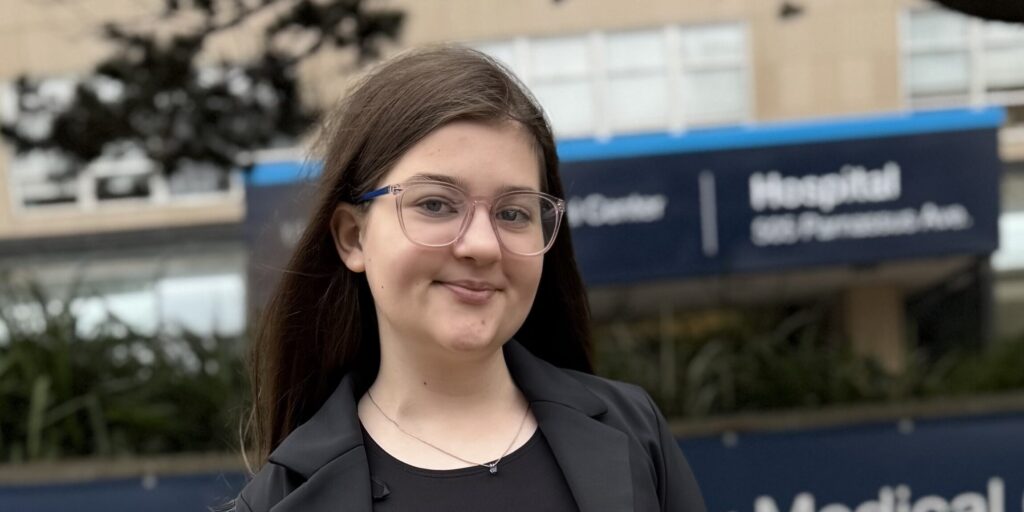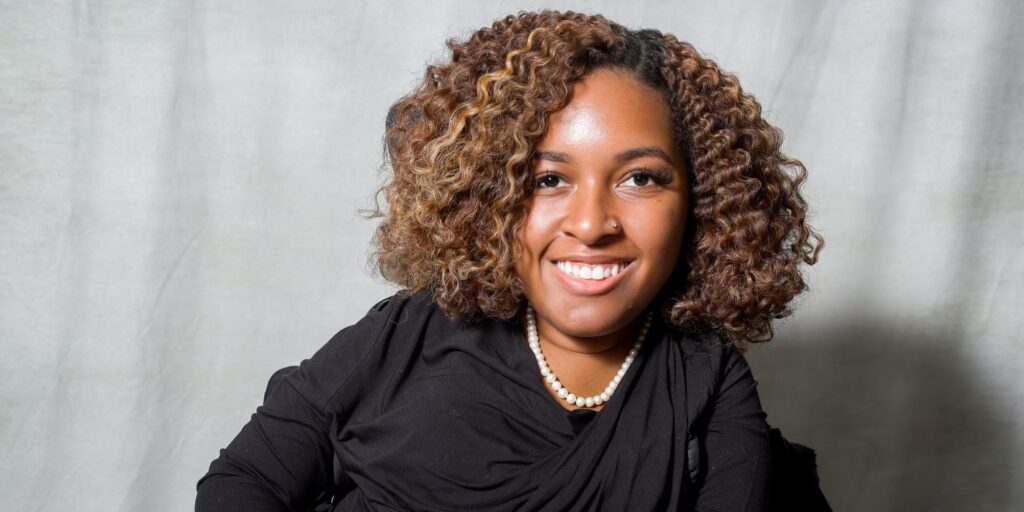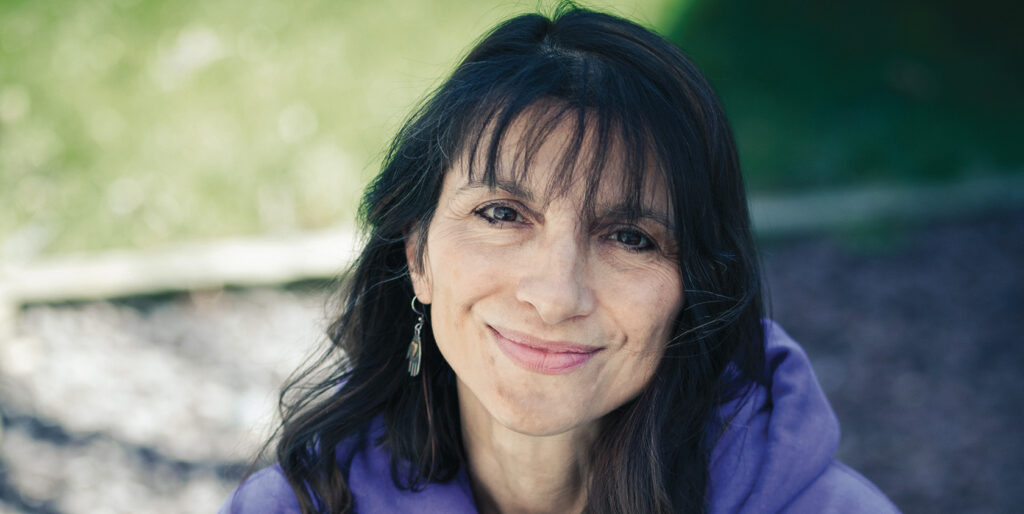
Talking About a Diagnosis Is a Personal Decision
By Cheryl Alkon | Thursday, May 18, 2023
When her late husband, Kevin, was diagnosed with amyotrophic lateral sclerosis (ALS) in 1995 at the age of 30, Jodi O’Donnell-Ames gathered their closest family and friends to tell their news.
“We shared that we would need help and hoped they would be our village — and that’s exactly what happened, and we were so grateful,” says Jodi, the founder of Hope Loves Company, a nonprofit that supports children and adolescents who have or had a loved one with ALS.
“With a complicated disease, being able to express your feelings, feel supported, and find helpful resources is extremely important,” she says.
ALS is one of the more common and severe neuromuscular diseases diagnosed in adulthood. Other neuromuscular diseases typically diagnosed in adulthood include some types of myotonic dystrophy (DM), Emery-Dreifuss muscular dystrophy (EDMD), facioscapulohumeral muscular dystrophy (FSHD), and limb-girdle muscular dystrophy (LGMD). How symptoms affect daily life and the rate of progression can vary greatly between diseases, and even from person to person.
As each disease journey is personal, so is the decision to tell family and friends about a diagnosis, what to disclose, and how to present it.
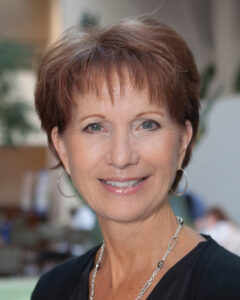
Rebecca Axline, LCSW-S, CSM, APHSW-C, emphasizes that sharing your diagnosis can help you get support and resources.
“I don’t believe there is a one-size-fits-all process,” says Rebecca Axline, LCSW-S, CSM, APHSW-C, a clinical social worker at the Houston Methodist Neurological Institute, who has worked with ALS patients for 17 years. “Just as you have made individual and family choices in the past, this is your choice to make.”
However, communicating about your disease is important. “I would encourage individuals to share with someone because connection, acceptance, and support is a universal need,” Rebecca says.
Choosing to tell
Consider the following questions:
- Who will you tell? Everyone you know, or just those closest to you, such as your children, parents, or siblings?
- Why should you share? Some people want to withhold a diagnosis to protect loved ones from sadness, or because they don’t want to be treated differently. But Rebecca maintains that honesty strengthens relationships. In addition, sharing can help you locate resources and get the support you and your family need.
- What do you want to say? Depending on your audience, you might share your specific diagnosis or a more general term, such as a “muscle disease.” Consider whether you want to explain how the disease will affect you as it progresses, and be up-front about how you want to be treated and what help you and your family might need.
- When will you share your news? Some people are ready to share right after their diagnosis, while others need some time to process the information first.
- Where will you have the conversation? Whether you talk in person, on video, or on the phone, a private setting is best.
Handling questions
Sabrina Johnson, a board-certified patient advocate, understands that the questions, concerns, and comments that follow these conversations, though they come out of love, can be overwhelming. Her father, known as Ton, died from ALS in 2019.
To avoid being overwhelmed, Sabrina recommends designating a point person to help spread the news and answer questions. That way, you don’t need to repeat everything. It also gives you space to process your feelings and enjoy time with your loved ones.
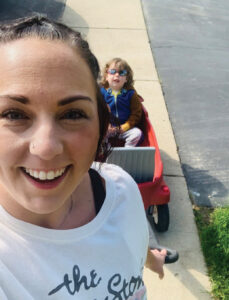
Sabrina Johnson’s oldest son was 2 when her father was diagnosed with ALS.
Managing emotional energy is important, Rebecca adds. She acknowledges that some people don’t know how to react and say unhelpful things, like offering advice or launching into their own family story of a disease.
“I encourage individuals to build ‘scripts’ to get out of awkward moments with these well-meaning people,” she says.
It’s OK to stick to the facts when family and friends ask for updates. “People do not need to know your feelings, stats during exams, or concerns,” Sabrina says. If someone asks how a medical appointment went, a facts-only response could be: “The appointment was helpful. The doctor checked my breathing, arm movement, and overall comfort. My next appointment is in three months.”
Talking to children
How you tell a child about a diagnosis depends on their age, maturity level, and personality. Be honest, but don’t overwhelm them with too much information at once. Make sure the conversation feels safe, secure, and supportive.
Jodi and Kevin’s daughter was 2 when Kevin was diagnosed. “When children are curious and comfortable enough to ask questions, give them answers to the best of your ability, or have them speak to a counselor who can,” Jodi advises. “You or a counselor won’t have all the answers, but you can welcome open conversations, and that allows children to feel heard and included.”
Sabrina, whose oldest son was 2 when her father was diagnosed, suggests letting a child’s teachers know about a relative’s diagnosis. “Together, the parents and school staff can make adaptations to ensure the child is cared for,” she says.
Starting the conversation
Many of us struggle to start difficult conversations, but don’t let that become an excuse to put it off. One strategy to help the conversation feel less daunting is to set a time limit for the discussion. “For example, you could say, ‘We are going to talk about this for 30 minutes, and then we will have lunch,’” Rebecca says. This helps keep the conversation on track and gives you both a chance to pause to process emotions.
When in doubt, remember that each person you tell about your diagnosis helps grow your support system.
Cheryl Alkon is a freelance writer based in Massachusetts.
Support for Life’s Transitions
MDA Next Steps Seminars offer information and resources on key topics related to life transitions, including receiving a diagnosis, transitioning to adulthood, and palliative and hospice care.
These virtual seminars are delivered over multiple days and include opportunities for participants to meet in small groups for facilitated discussions and support. The goal of the Next Steps Seminars is to empower individuals and families with the information they need to navigate the next steps in their journey with confidence.
There is no cost, but registration is required. Find upcoming Next Steps Seminars here.
Next Steps and Useful Resources
- A diagnosis brings strong emotions. Learn tools and strategies to cope in an MDA Virtual Learning webinar on grief and loss.
- Read personal stories about learning to live with a neuromuscular disease diagnosis.
- Get live support from an MDA Specialist through the MDA Connect program.
- Stay up-to-date on Quest content! Subscribe to Quest Magazine and Newsletter.
Disclaimer: No content on this site should ever be used as a substitute for direct medical advice from your doctor or other qualified clinician.



